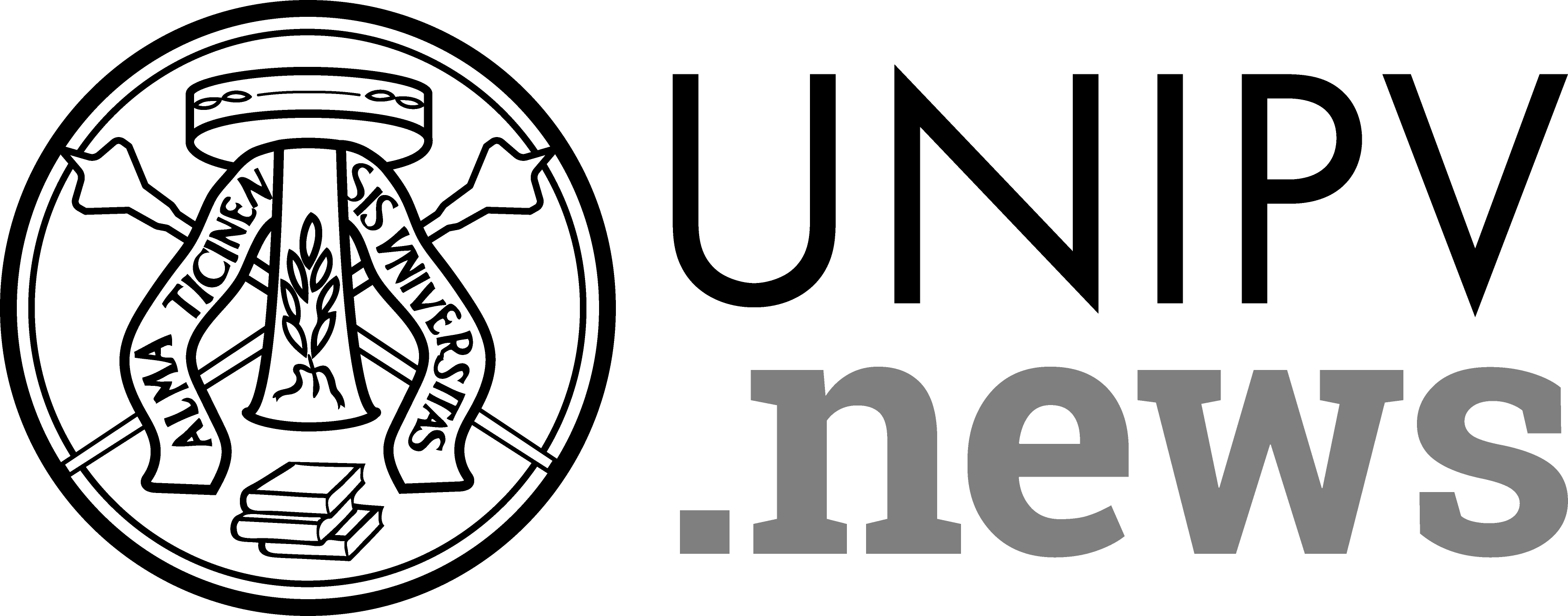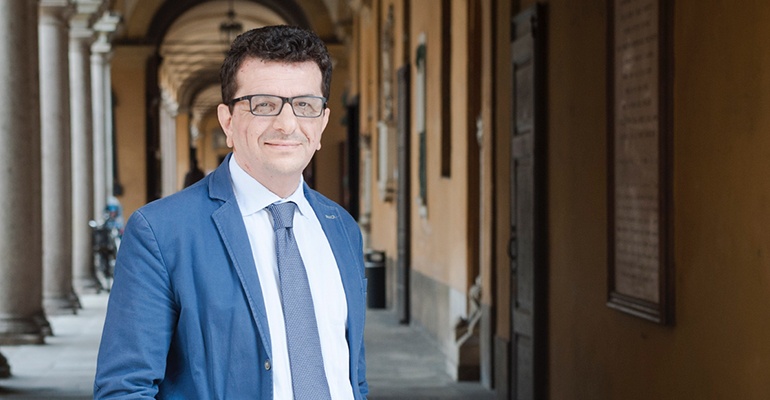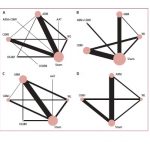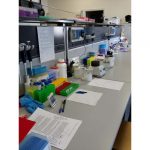Care Colleghe e cari Colleghi, care Studentesse e cari Studenti, (English below)
questo lungo periodo, trascorso prevalentemente in casa, lascia un senso di smarrimento verso ciò che non si è ben compreso, ma anche, e purtroppo, una tragedia personale per più di uno di noi. La prospettiva di una ripresa, in maggio, va vista con equilibrato ottimismo.
Soprattutto in Lombardia, regione così duramente colpita, maggiore è la necessità di cautela. Ma è altrettanto vero che il prevalere di un timore paralizzante avrebbe effetti devastanti sia sotto il profilo psicologico, sia sotto quello economico e lavorativo. È necessario, quindi, che le nostre scelte consentano una ripresa graduale ma, al tempo stesso, evitino che troppe persone possano frequentare contemporaneamente gli stessi spazi, non solo in Ateneo, ma anche sui trasporti pubblici e in città.
Abbiamo, per questo, deciso di escludere fino alla fine di giugno qualunque forma di didattica in presenza, così come esami di laurea e di profitto che continueranno ad essere a distanza. E con tutta probabilità tale sospensione sarà confermata anche per il mese di luglio.
Viceversa, sarà consentito l’accesso controllato ed in sicurezza ai laboratori e agli altri spazi dedicati alla ricerca.
Pur non essendosi mai fermata, la nostra ricerca ha subìto un rallentamento e soprattutto una focalizzazione su aspetti legati all’emergenza da Covid-19.
A tale riguardo, mi preme sottolineare come la fase che stiamo vivendo abbia ancora una volta provato che non si hanno progressi in campo medico, ma anche tecnologico ed umanistico-sociale, senza profonde radici nella ricerca di base. Ad esempio, lo sviluppo di efficaci test per l’individuazione degli anti-corpi, su cui molto si punta, trae beneficio da filoni di ricerca fondamentale legati ad altre patologie. Questo va ricordato prima di tutto a noi stessi e poi ai decisori pubblici per una rinnovata politica a sostegno delle scienze e dell’università.
Dalla ripresa di maggio, sempre nel pieno rispetto delle misure di sicurezza, potranno accedere nuovamente in università i titolari di assegni o di borse di ricerca e gli studenti di dottorato sotto la guida dei rispettivi tutor. Seguiranno, ma solo successivamente, gli studenti che svolgono tesi di laurea sperimentali. Ripartirà poi il servizio di prestito dei libri in biblioteca con la già sperimentata metodologia “senza contatto”. I docenti potranno frequentare i laboratori o spazi analoghi di cui siano responsabili, ma non rientrare stabilmente nei loro uffici, bensì solo temporaneamente per esigenze connesse con l’erogazione della didattica a distanza.
L’Unità di crisi sta completando le linee-guida che conterranno le indicazioni per le modalità sicure di accesso e frequentazione. Il Pro-Rettore alla Ricerca invierà a breve un messaggio specifico.
Il personale tecnico-amministrativo ed i collaboratori esperti linguistici proseguiranno con le prevalenti modalità di lavoro a distanza, che sono risultate più efficaci di quanto fosse lecito attendersi, visto il modesto utilizzo che si era soliti farne nella pubblica amministrazione. A tale proposito, rinnovo la mia gratitudine per la generosità e professionalità dimostrate in questi giorni così difficili. L’occasione per proseguire sulla strada della dematerializzazione e facilitazione amministrativa non va sprecata ed anzi proseguiremo convinti. Continueremo a garantire i servizi amministrativi essenziali, con un parziale incremento atteso dal riavvio controllato delle attività di laboratorio. In ogni caso, il personale coinvolto sarà il minimo necessario allo svolgimento delle attività di ricerca dipartimentali. La ripresa per il personale tecnico-amministrativo avverrà in assoluta conformità alle nuove disposizioni governative, attese a breve. Appena possibile, sarà inviata una indicazione specifica.
La necessità di sospendere le attività in presenza ha trovato nell’università un’istituzione capace di reagire in modo rapido, garantendo la completa funzionalità, compreso lo svolgimento delle varie prove di esame, anche quelle scritte di profitto. Di tutto questo dobbiamo essere grati a tutto il corpo accademico pavese.
Non ci poteva però essere occasione più chiara per constatare quanto lo scambio diretto docente-studente, la relazione interpersonale tra studenti, possibili solo in presenza, siano insostituibili per la crescita non solo formativa, ma anche umana. Riaffermo, con convinzione, la volontà di riprendere l’erogazione in presenza nel prossimo anno accademico, non appena le condizioni di sicurezza sanitaria lo consentiranno.
L’incertezza sull’andamento dell’epidemia ci porta a considerare comunque anche l’erogazione a distanza con il dichiarato scopo di essere inclusivi nei confronti di tutti i nostri studenti, in particolare se provenienti da altra provincia o regione, che potrebbero trovarsi nell’impossibilità di muoversi dalla casa di residenza. Pertanto, il primo semestre del prossimo anno accademico, sarà erogato in forma mista, sia a distanza che in presenza, e sono allo studio modalità innovative da proporre alla nostra comunità studentesca ed alla future matricole.
Ho avuto modo di rimarcare, in occasione dell’inaugurazione dell’anno accademico 2019-2020, un concetto che mi è particolarmente caro e che mi pare ancora vicino, anche se quel giorno sembra molto lontano. In questo periodo, infatti, si ripete spesso, e forse con un po’ di retorica, che ci aspetta una società completamente diversa. Non so se questo sarà vero, ma spero che questa diversità possa significare anche che governi nazionali e locali, presenti e futuri, pensino seriamente al futuro dei giovani da molto colpevolmente dimenticati.
Un cordiale saluto.
Francesco Svelto
Rettore dell’Università di Pavia
Messaggio del Rettore 26 04 20
***
Dear Colleagues and Dear Students,
this long period, spent mainly at home, leaves a sense of bewilderment towards what is not well understood, but also, and unfortunately, a personal tragedy for more than one of us. The prospect of a recovery in May should be viewed with balanced optimism. Especially in Lombardy, a region so hard hit, caution is needed. But it is equally true that the prevalence of a crippling fear would have devastating effects both from a psychological point of view and from an economic and employment point of view.
It is therefore necessary that our choices allow a gradual recovery but, at the same time, avoid that too many people can attend the same spaces at the same time, not only in the University, but also on public transport and in the city.
For this reason, we have decided to exclude any form of face-to-face teaching until the end of June, as well as degree and profit exams that will continue to be online. Most likely, this suspension will also be confirmed for the month of July.
Vice versa, controlled and safe access to laboratories and other spaces dedicated to research will be allowed.
Although it never stopped, our research has slowed down and, above all, it has been focusing on aspects related to the emergency from Covid-19.
In this regard, I would like to underline how the phase we are experiencing has once again proved that there cannot be progress in the medical field, but also in technological and humanistic-social ones, without deep roots in basic research. For example, the development of effective tests for the detection of anti-bodies, on which much is focused, benefits from fundamental research strands related to other pathologies. This should be remembered first of all to ourselves and then to public decision-makers for a renewed policy in support of the sciences and the university.
Since the resumption of May, always in full compliance with the security measures, holders of grants or research grants and PhD students will be able to access the university again under the guidance of their respective tutors. Students who carry out experiments for the final thesis will follow, but only later. The lending service for books in the library will then restart with the already tested “contactless” methodology. Professors will be able to attend the workshops or similar spaces for which they are responsible, but not to return permanently to their offices, but only temporarily for needs connected with the provision of online teaching.
The Crisis Task Force is completing the guidelines which will contain the indications for the safe access and attendance procedures. The Pro-Rector for Research will shortly send a specific message.
The technical-administrative staff and language expert collaborators will continue with the prevailing remote working methods, which have proved more effective than expected, given the modest use that was usually made of them in public administration. In this regard, I renew my gratitude for the generosity and professionalism shown in these difficult days. The opportunity to continue on the path of dematerialisation and administrative facilitation should not be wasted and indeed we will continue convinced. We will continue to guarantee essential administrative services, with a partial increase expected from the controlled restart of laboratory activities. In any case, the personnel involved will be the minimum necessary to carry out the departmental research activities. The recovery for technical-administrative staff will take place in absolute compliance with the new government provisions, expected shortly. As soon as possible, specific information will be sent.
The need to suspend face-to-face activities has found our university capable of reacting quickly, guaranteeing complete functionality, including the performance of the various exam tests, including written ones. Of all this we must be grateful to the entire academic body of Pavia.
However, there could not have been a clearer occasion to ascertain how much the direct teacher-student exchange, the interpersonal relationship between students, possible only in the presence, are irreplaceable for not only educational but also human growth. I reaffirm, with conviction, the desire to resume face-to-face activities in the next academic year, as soon as the health security conditions allow it.
The uncertainty on the course of the epidemic leads us to consider, however, that online activities will guarantee inclusiveness towards all our students, in particular if coming from another province or region, who could be not allowed to move from there. Therefore, the first semester of the next academic year will take place in a mixed form, both online and in presence, and innovative ways are being studied to propose to our student community and to future students.
On the occasion of the inauguration of the 2019-2020 academic year, I had the opportunity to underline a concept that is particularly dear to me and I still feel it close, even if that day seems far away. In this period, in fact, it is often repeated, and perhaps with a little rhetoric, that a completely different society awaits us. I don’t know if this will be true, but I hope that this diversity can also mean that national and local governments, present and future, seriously think about the future of young people who have been guilty forgotten.
Best wishes.
Francesco Svelto
Rector of the University of Pavia




